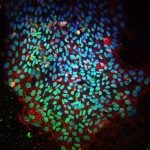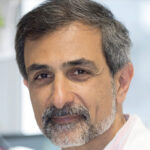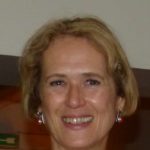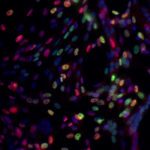Link to Pubmed [PMID] – 25262445
Link to DOI – 10.1016/j.scr.2014.08.005S1873-5061(14)00094-4
Stem Cell Res 2014 Nov; 13(3 Pt A): 492-507
The loss of genome integrity in adult stem cells results in accelerated tissue aging and is possibly cancerogenic. Adult stem cells in different tissues appear to react robustly to DNA damage. We report that adult skeletal stem (satellite) cells do not primarily respond to radiation-induced DNA double-strand breaks (DSBs) via differentiation and exhibit less apoptosis compared to other myogenic cells. Satellite cells repair these DNA lesions more efficiently than their committed progeny. Importantly, non-proliferating satellite cells and post-mitotic nuclei in the fiber exhibit dramatically distinct repair efficiencies. Altogether, reduction of the repair capacity appears to be more a function of differentiation than of the proliferation status of the muscle cell. Notably, satellite cells retain a high efficiency of DSB repair also when isolated from the natural niche. Finally, we show that repair of DSB substrates is not only very efficient but, surprisingly, also very accurate in satellite cells and that accurate repair depends on the key non-homologous end-joining factor DNA-PKcs.



